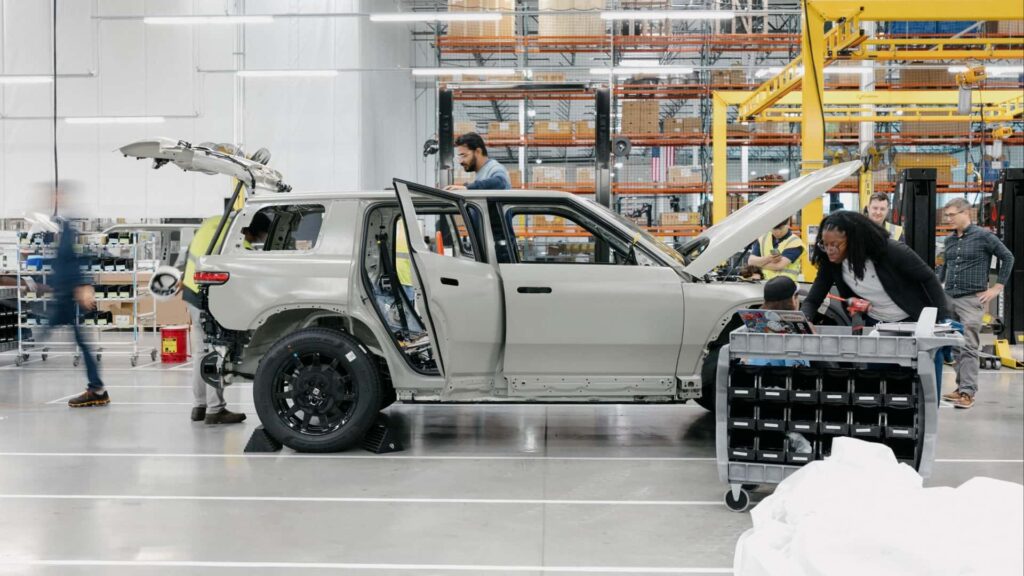Rivian, the electric vehicle startup, is facing challenges due to evolving trade regulations and tariffs imposed by the Trump administration. Despite these obstacles, Rivian’s CEO R.J. Scaringe has announced that the starting price of the R2 crossover will remain at $45,000. This decision is crucial for the company as it aims to maintain its competitive edge in the market.
The R2 crossover is set to begin production in Illinois in the first half of 2026. However, Rivian has reduced its delivery guidance for 2025 to 40,000-46,000 vehicles, down from the initial estimate of 46,000-51,000 units. The impact of trade regulations on material costs, availability, and demand has forced Rivian to reassess its delivery targets.
Scaringe emphasized the importance of the R2 model for Rivian’s future growth. The company’s average selling price for the first quarter was around $88,500, reflecting the high demand for its flagship products, including the R1T pickup, R1S SUV, and commercial van. However, the introduction of tariffs on cars and car parts could affect Rivian’s production costs and vehicle prices.
To mitigate the impact of tariffs, Rivian plans to source batteries domestically. Initially, the R2 will use batteries from LG Energy Solution in South Korea, but by early 2027, Rivian will transition to batteries sourced from a facility in Arizona. This strategic move will help Rivian navigate the challenges posed by trade regulations and ensure a steady supply of components for its vehicles.
Despite the uncertainties in the global trade environment, Rivian remains committed to its mission of producing high-quality electric vehicles. The company’s focus on sustainability and innovation has positioned it as a key player in the EV market. With the upcoming launch of the R2 crossover, Rivian is poised to capture a larger market share and continue its growth trajectory in the electric vehicle industry.

